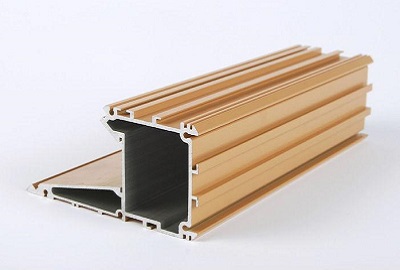Ship aluminum alloy refers to aluminum alloy plates, profiles, aluminum alloy rivets, and aluminum alloy pistons that are used to build hulls and equipment and are resistant to seawater corrosion. For the manufacture of aluminum alloys for low temperature liquefied gas transportation spherical tanks, the relevant test data should be submitted to CCS for approval. Other aluminum alloy castings and forgings can be accepted according to the relevant standards accepted by the classification society.
Ship aluminum alloy can be produced using ingot molds approved by classification societies and continuous or semi-continuous casting methods. Plates should be manufactured by hot rolling or cold rolling according to their mechanical properties, profiles should be manufactured by extrusion, and pipes can be manufactured by extrusion or drawing.
Unless otherwise agreed, non-destructive testing of aluminum alloys is not a condition for acceptance. But the manufacturer should take effective measures to ensure the internal quality of aluminum alloys.
Ship aluminum alloy is one of the emerging fields of aluminum alloy products, and it is also the focus of the transformation and upgrading of many domestic aluminum processing enterprises. Since marine aluminum alloys are used in marine vessels and other fields, they have stricter process requirements and performance standards than other ordinary aluminum alloy products.

One is to have high specific strength and specific modulus. The structural strength and size of the ship are closely related to the yield strength and elastic modulus of the material. Since the elastic modulus and density of aluminum alloys are almost the same, the addition of alloying elements also has little effect. So improving the yield strength within a certain range is effective in reducing the structure of the ship. High-strength aluminum alloys are generally difficult to have both excellent corrosion resistance and weldability. Therefore, marine aluminum alloys are generally medium-strength, corrosion-resistant, and weldable alloys.
The second is an excellent welding performance. At present, the automatic argon arc welding method is mainly used in ships. Good weldability means that the tendency of cracks formed by aluminum alloys during welding is small. That is, aluminum alloys must have good welding crack resistance. Because under the shipbuilding conditions, the lost welding performance cannot be recovered by heat treatment again.
The third is excellent corrosion resistance. Ship structure is used in more or less harsh seawater medium and marine environment, therefore, corrosion resistance is one of the main signs of marine alloys.
Fourth, aluminum alloy has a good cold and hot forming properties, because shipbuilding undergoes various treatments including cold processing and hot processing. Therefore, marine aluminum alloys must be easy to process and form without crack defects, and can still meet the strength and corrosion resistance requirements after processing.
The selection of marine aluminum alloys is more strict. Currently, aluminum alloy products such as 5083, 5086, 5454, 5754, and 6061 are mostly used. In practical applications, the advantages of marine aluminum alloys are very obvious. The first is that the specific gravity is small, which can reduce the weight of the ship, save energy consumption, and increase the load capacity. Secondly, it has good corrosion resistance, reduces oiling and other expenses, and extends the service life. The third is the welding and processing formability number, which is conducive to later processing. Finally, aluminum scrap is easy to recycle and can be recycled. At the same time, it does not burn and is safe in case of fire.
